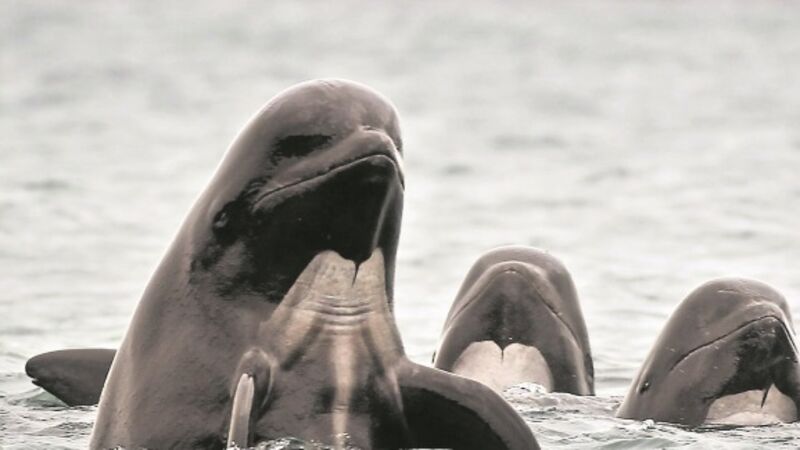Blasket islander was spot on about long-finned pilot whale

Although these ‘blackfish’ approach the coast occasionally, they are seldom seen from the shore. Nor is it easy to find them in the vast ocean but, with excellent visibility and calm seas last week, our boat soon homed in on a pod.
Unlike dolphins, pilot whales don’t approach boats or ride bow-waves, though they’re not afraid of people and don’t flee when approached. The whales accepted our intrusion; a trusting female came right up to us but the big males ignored the boat as it drifted silently among them.










